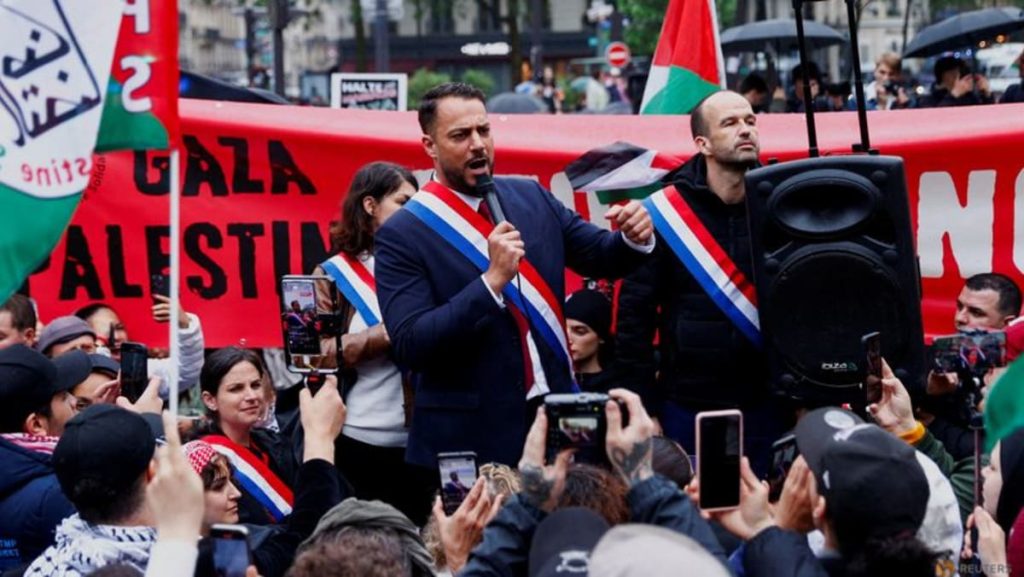Voter turnout among ethnic minorities in EU elections has historically been lower than the general population, but the recent Gaza war may serve as a motivating factor for these groups to participate. In 2016, Germany’s Social Democrats lost a significant number of Turkish voters after recognizing the Armenian genocide, leading to the creation of DAVA, a new party targeting Turkish diaspora voters. This new party offers an option for a protest vote that was previously unavailable to Muslims in Germany, who often feel unrepresented by existing political parties. A survey conducted in December showed that one in three German Muslims did not feel represented by any party, highlighting the importance of political representation for minority communities.
In France, a new sense of political representation is also emerging among ethnic minority voters. The far-left party LFI has nominated French-Palestinian lawyer Rima Hassan as a candidate, who actively participates in protests, engages on social media, and advocates for the suspension of the EU’s association agreement with Israel. This move has resonated with voters like Chama Tahiri Ivorra, a French-Moroccan chef, who had never voted in a European election before but intends to do so this time. Ivorra sees voting for Rima Hassan as an act of resistance and resonates with LFI’s stance on the Palestinian issue.
The impact of foreign policy issues on the ethnic minority vote is evident, with instances such as the recognition of the Armenian genocide affecting voter preferences. Teyfik Özcan, chairman of DAVA, highlighted how the German Social Democrats lost a significant number of Turkish voters due to this issue, prompting the creation of his party to offer an alternative for protest votes. This option was previously unavailable to Muslims in Germany, who now have a platform to express their dissatisfaction with existing political parties. The new party aims to address the lack of representation felt by minority communities in the country.
Radboud University’s Azabar emphasized the importance of voter turnout among ethnic minorities in EU elections, citing lower participation rates compared to the general population. The recent Gaza war has the potential to motivate these groups to engage in the electoral process and make their voices heard. In Germany, a survey revealed that many Muslim voters did not feel represented by any political party, underscoring the need for improved representation and engagement with minority communities. The emergence of new parties like DAVA offers an opportunity for minority voters to express their opinions and participate in the political landscape.
The lack of political representation for minority communities in Germany and France has led to the mobilization of the minority vote through new parties and candidates. DAVA in Germany and LFI in France have provided platforms for ethnic minority voters to voice their concerns and advocate for issues important to them, such as the Palestinian cause. The recognition of the Armenian genocide and the recent Gaza war have highlighted the importance of foreign policy issues in shaping the preferences of ethnic minority voters. By offering alternatives for protest votes and advocating for issues that resonate with minority communities, these new parties and candidates aim to increase political engagement and representation among ethnic minorities in EU elections.
Overall, the mobilization of the minority vote in EU elections reflects a growing awareness and engagement among ethnic minority communities in countries like Germany and France. The recognition of the Armenian genocide, the recent Gaza war, and other foreign policy issues have influenced the voting preferences of minority groups, leading to the emergence of new parties and candidates that address their concerns. The need for improved political representation and engagement with ethnic minority voters is evident, as highlighted by the low turnout rates and feelings of underrepresentation among these communities. Through the mobilization of the minority vote, these groups have the opportunity to make their voices heard and shape the political landscape in the upcoming EU elections.















